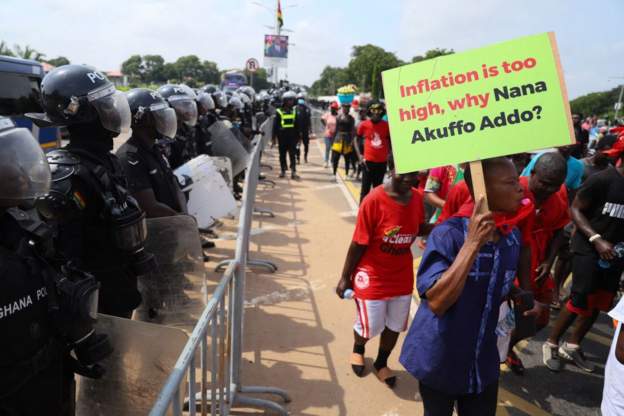Ghana’s Price Hike: A Deeper Look into Inflation Trends.
In Ghana, the latest data from the country’s statistical service reveals an average price increase of 43.1% over the past year, marking a notable uptick. This rise follows a pattern seen over the past three months, even though earlier in the year, signs of a slowdown were evident.
The driving force behind these price surges is primarily the steep costs associated with food products.

In a bid to curb inflation, the central bank has been steadily increasing interest rates, aiming to temper demand.
However, economist Edu Sarkodie puts forth an alternative view, suggesting that the persistent inflation rate is a result of excessive money printing by the central bank.
Sarkodie notes, “If inflation were solely driven by production costs, fuel expenses, and currency exchange impacts, we would have observed a rate drop below 40% by now.”
Adding to the narrative, Ghana’s largest opposition party, the National Democratic Congress, recently issued a three-week ultimatum to the bank’s governor, Dr. Ernest Addison, and his deputies, urging their resignation. Their allegations of incompetence, mismanagement, and recklessness have been refuted by central bank officials, setting the stage for a debate on the country’s economic trajectory.


